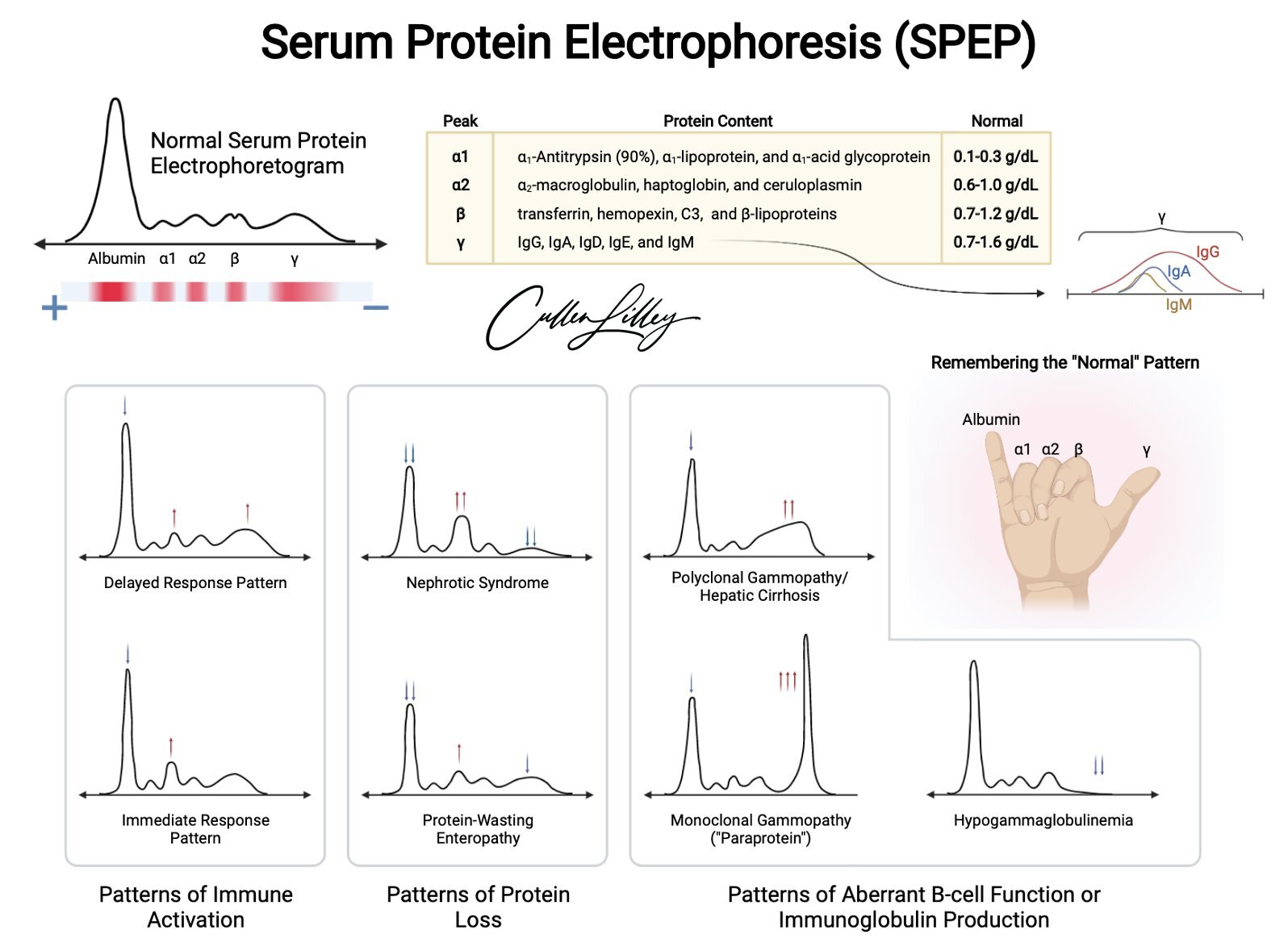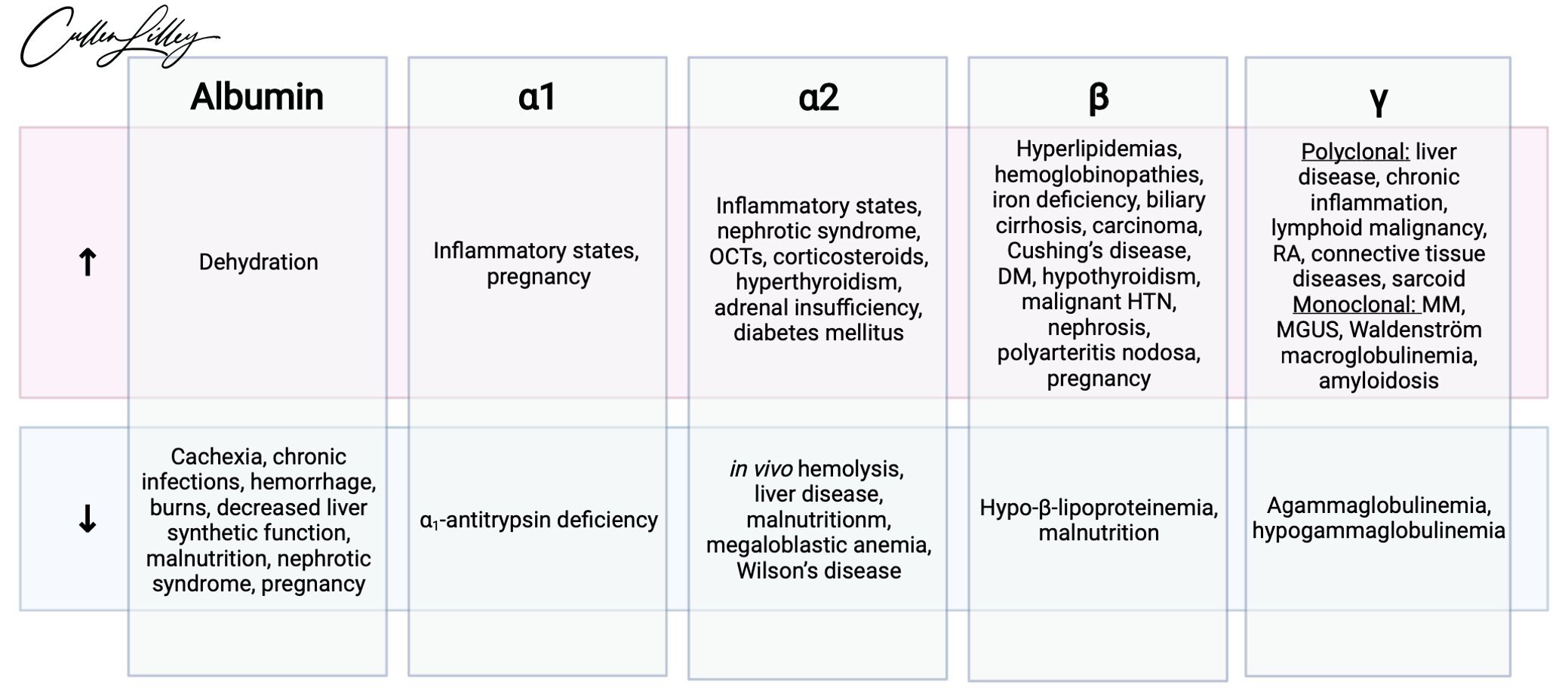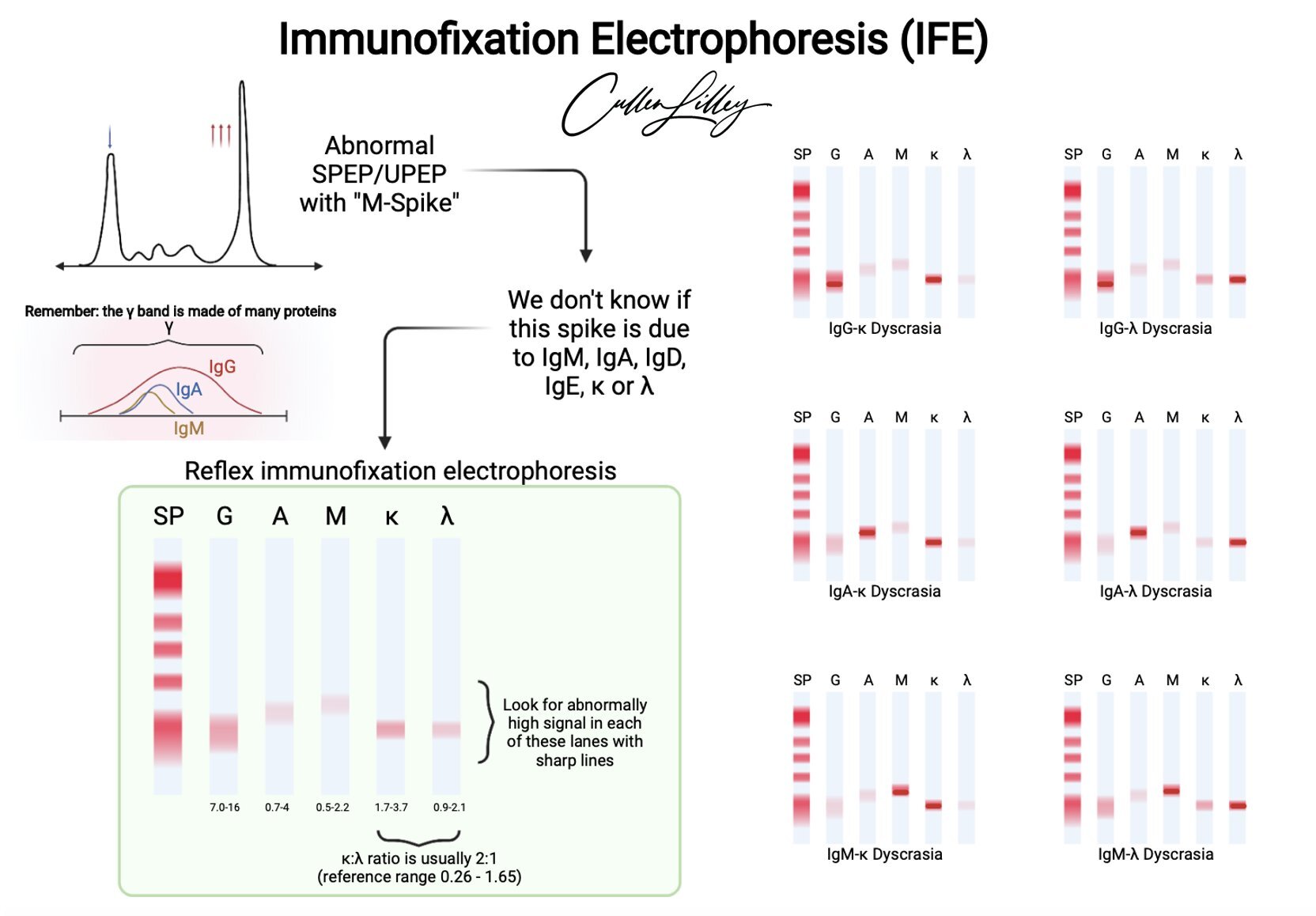Serum Protein Electrophoresis and Immunofixation Electrophoresis (SPEP/IFE)
For a pictorial PDF summary of this tutorial, click here!
For this week’s #MicroMedEd, I will be trying something new as suggested by @smlungpathguy. Let's explore serum protein electrophoresis. #HemeBytes #Tweetorial
Most people will order the #SPEP to examine the cause of an elevated protein/gamma gap (Total Protein – Albumin > 4). So, why would the gamma gap be elevated? First, you have to know the proteins... what is the major protein in the serum? Albumin!
Well… What is a group of proteins that has been on everyone’s mind recently with #COVID19? ANTIBODIES! How are #antibodies made? B-CELLS! Here is a #MicroMedEd throwback where we talked about B-cell maturation… B-Cell Development post
Okay, so we know about #antibodies… What would cause a decrease in antibodies (and thus a narrowing of the gamma gap)? Here's a little review of the common primary B-cell immunodeficiencies:
So... immunodeficiencies cause decreased #Antibodies, but what causes an ELEVATED gamma gap? One of the big ones: elevated #Antibodies (monoclonal OR polyclonal ) Alternatively: decreases #Albumin Take a look at these #SPEP #patterns
What about causes of changes in the Albumin levels or the proteins in the alpha-1, alpha-2, beta, or gamma bands? Here is a table to help guide your #differential.…
Okay... What if you have an elevated representation of the gamma band? How do you know if it is multiple myeloma, Waldenstrom macroglobulinemia, MGUS, or just an infection?
Get an immunofixation electrophoresis!
Here is a review of that process...
So why is the #GammaGap so commonly calculated in the primary care setting... Well, there is some data. Here is the paper that assessed this connection as well as some of the data.




This was a big deal because it showed that the gamma gap could be a little clue in the #outpatient setting if there is something else going on. I mean, who wouldn't want to know if they had #HCV/ #HIV/ #MGUS?
Some conclusions:
Because of the specificity, an elevated gamma warrants further testing in HIV and HCV.
This is not a good screening tool bc it was specific and not sensitive.
Many patients with HIV, HCV, and MGUS did not have an elevated gamma gap.
Well, there were also limitations to this study:
These analyses were done in outpatients.
These patients did not have underlying conditions (i.e.: autoimmune, inflammatory, infectious, etc.)
There were certain ages included (HIV > 18 y/o, HCV > 6 y/o, MGUS > 50 y/o)
So is there a way to tell when to test for #MGUS? Well, there was another study that tried to answer that using a scoring system and calculation. This can help clinicians know when to start thinking about further testing.
So what have we learned? Did you enjoy this #tweetorial on #SPEP and #GammaGap #ProteinGap?
Here are some resources:









